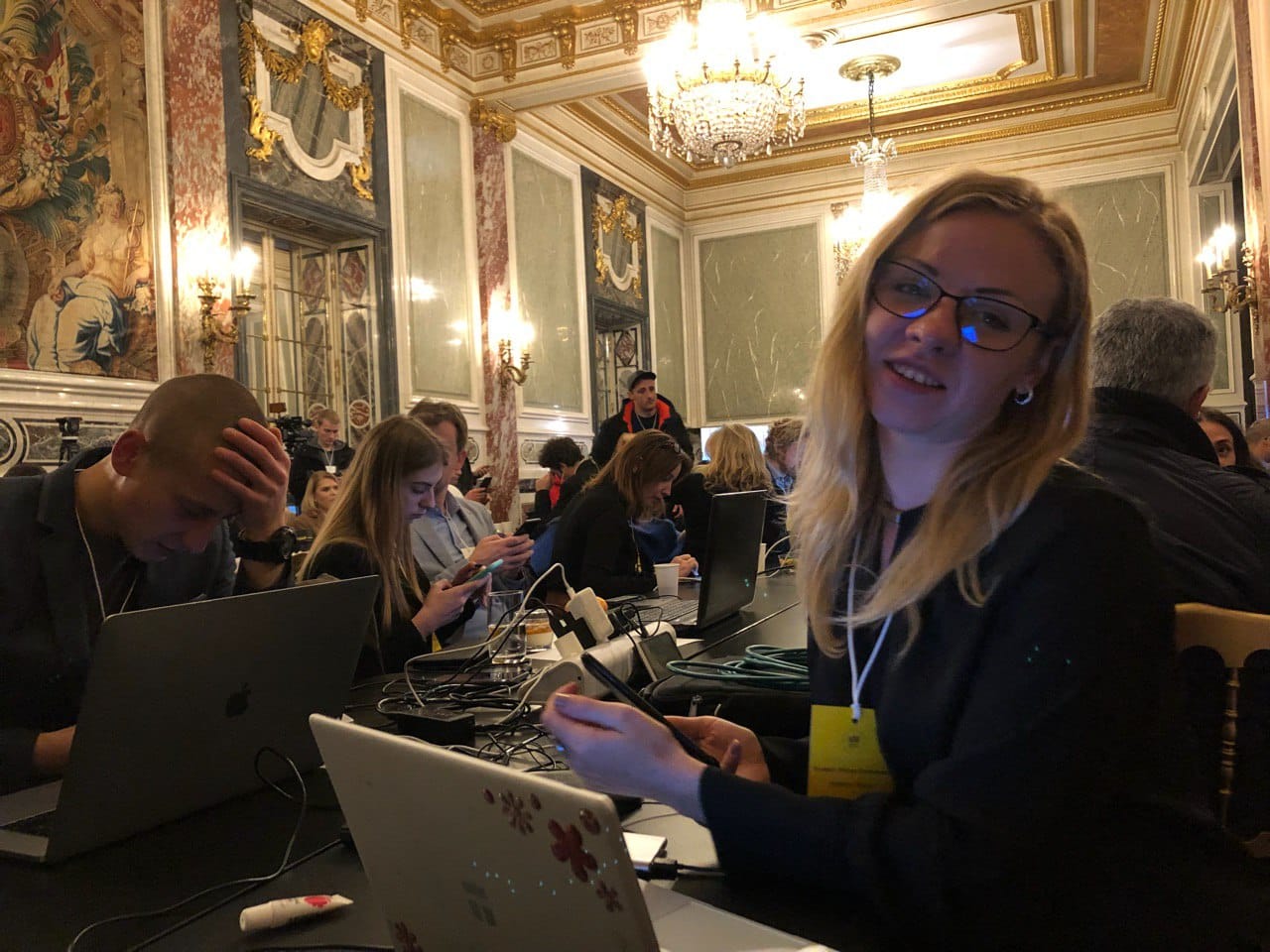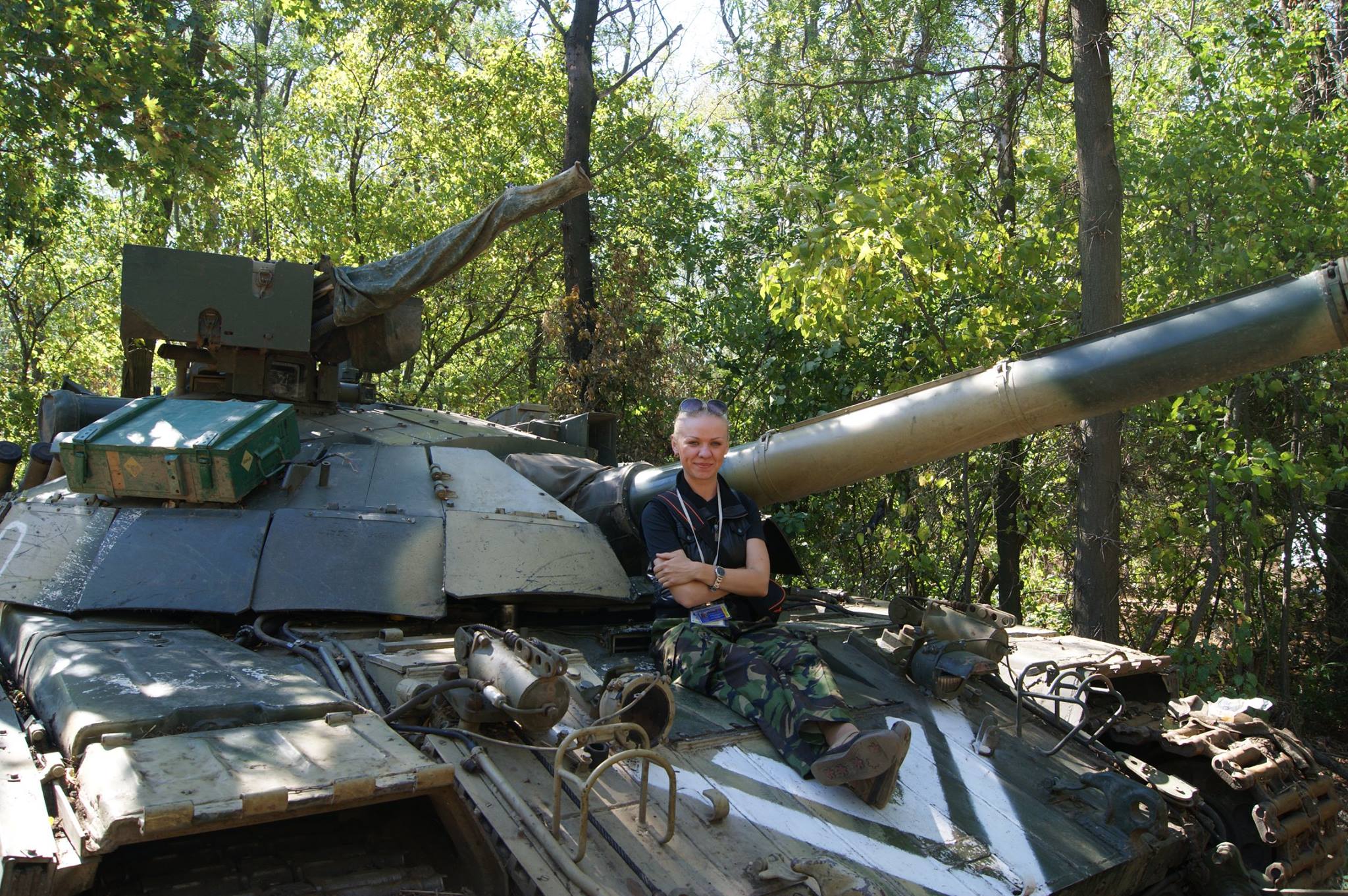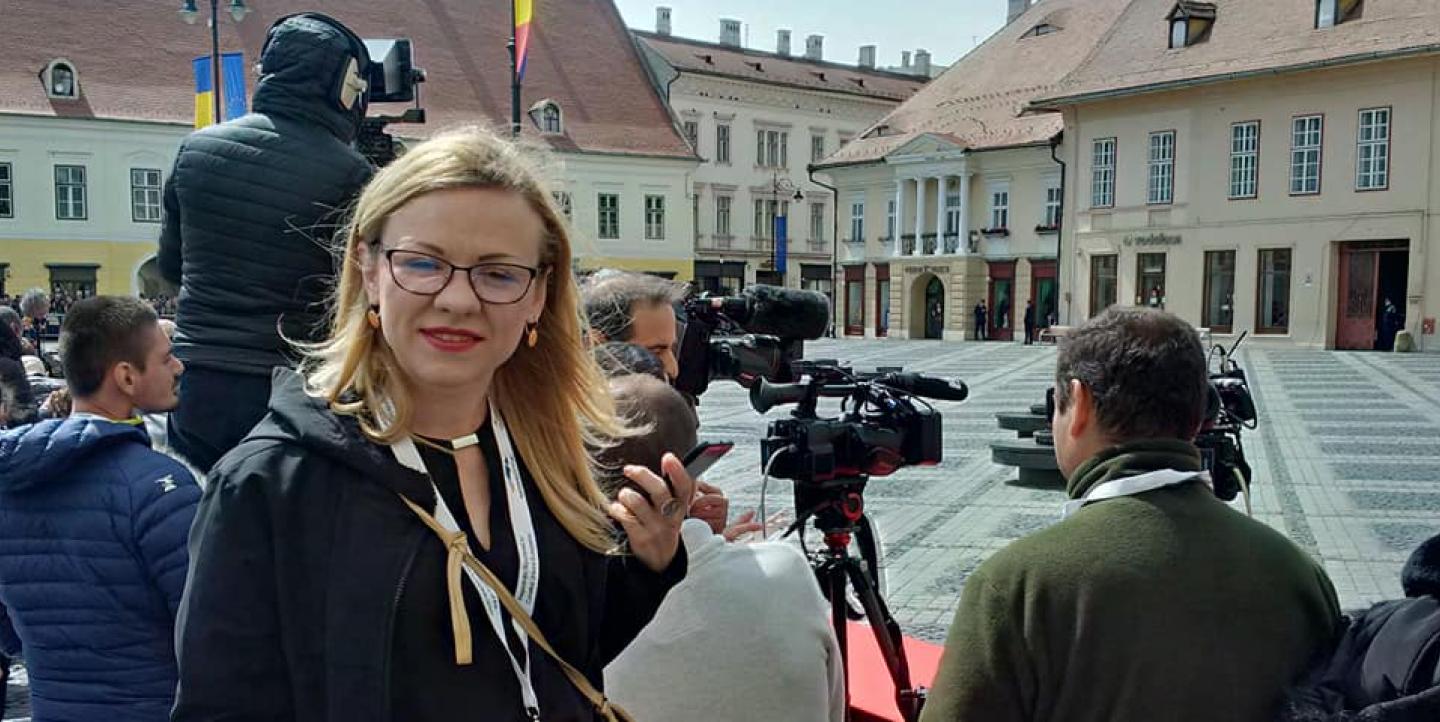As a political journalist in Ukraine, Marianna Prysiazhniuk has found herself caught in a few nerve-wracking situations. Non-official police in the country once detained her while she was on the job, and she has covered protests where armed forces were present.
These experiences were all very educational, Prysiazhniuk told IJNet.
“Situations like these have taught me a lot,'' she said. "I am more prepared to deal with [similar] situations in the future.”
Prysiazhniuk wasn’t always a journalist. She studied pedagogy and psychology in university and began working as a schoolteacher after graduating. “I was about 23 or 24 years old when I decided to try [journalism],” she said. “I realized that I needed to change something in my life. It was difficult because I had to study a lot by myself without any support.”
[Read more: Tips for early-career journalists during the pandemic]
Despite the difficulties, Prysiazhniuk is confident the career change was the right move for her. Today, she works as a correspondent for RBC-Ukraine, a news agency in Kyiv where she primarily covers politics and international relations.
Prysiazhniuk said she visits IJNet to stay on top of the latest developments in journalism, like COVID-19 for instance. She also regularly uses IJNet to expand her professional network and that of her colleagues.
Prysiazhniuk spoke with IJNet about her background as a reporter, political journalism in Ukraine, and her advice for emerging political journalists today.
IJNet: What did your start in journalism look like?
Prysiazhniuk: When I first started, I worked for several years in Kyiv for several agencies’ online production studios. In 2017, I moved to Romania, studied, and worked there. I also worked for Radio Romania International. After that experience, I moved to Germany and did an internship with Deutsche Welle. Then I came back to Kyiv and by that time the coronavirus crisis started.
Right now, I work with a local information agency, RBC-Ukraine. It is one of the biggest news agencies here. I currently cover international relations, politics, and internal issues.
[Read more: Colombian journalist Karoll Pineda discusses reporting during COVID-19]
What are you working on right now?
I finished an article [recently] about the military escalation between Armenia and Azerbaijan. I live in a region where this is a very current topic because we also have Russian aggression in Ukraine.
Moldova has the same problem, dating back to the ’90s. In the South Caucasus region, the next level of tension has arisen. It is important for us to know how [the conflict] works out for them because it involves negotiations and blackmail. For me, it's important to follow countries with whom we have economic and political ties.

What are some challenges that you’ve encountered as a reporter?
I had some when I was reporting in occupied Transnistria in Moldova. There was one story that I was working on where I was captured by local Russian proxies. They are a part of a quasi-republic; no one accepts them as it's against international law.
In this republic, some of these so-called authorities are functioning and they provide some kind of public order. They call themselves police, as well, but they are not part of the official police force. I wasn't detained for a long time, only for several hours. They were asking me questions about what I'm doing here, and why I don't use their illegal accreditations.
Another situation that I was in, I was scared because there were armed forces with military machines trying to force people to go home during a protest, which had thousands of participants.

What advice do you have for emerging journalists?
I try to divide my feelings — my personal feelings — from my professional feelings. I try to leave them at home. I don't take my emotions with me, because I need to understand and follow journalistic rules.
I also need to remember my [reporting] can destroy lives. It is important to remember: your mission is to bring truth. It is very important to remember how it affects other lives.
Donethe Cyprien is an intern with IJNet.
All images courtesy of Marianna Prysiazhniuk.
This story was originally published using the outdated spelling for Kyiv. It was edited to reflect the updated city name.

